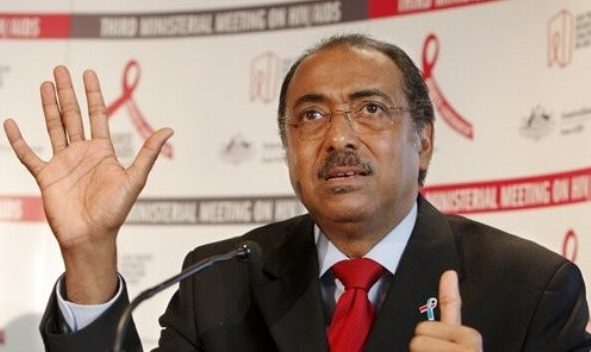The joint United Nations Programme on HIV/AIDS, UNAIDS, says 9.4 million people living with HIV are unaware they have the virus.
A new report released by UNAIDS which revealed this however; showed that intensified HIV testing and treatment efforts are reaching more people living with HIV.
The report titled ‘Knowledge is power,’ said that “in 2017, three quarters of people living with HIV (75%) knew their HIV status compared to just two thirds (67%) in 2015 and 21.7 million people living with HIV (59%) had access to antiretroviral treatment, up from 17.2 million in 2015.”
It called for urgent steps to be taken to link those unaware of their status to HIV testing and treatment services.
“To reach the millions who do not know their status, we need universal access to HIV testing services. HIV testing should be as widely available as pregnancy testing,” Michel Sidibé, Executive Director of UNAIDS said.
The report equally revealed that though the number of people living with HIV who are virally suppressed has risen by around 10% in the last three years, reaching 47% in 2017, 19.4 million people living with HIV still do not have suppressed viral loads.
It noted that for an individual to remain healthy and to prevent transmission, the virus needed to be suppressed to undetectable or very low levels through sustained antiretroviral therapy adding that to effectively monitor viral load, people living with HIV need access to viral load testing every 12 months.
READ ALSO: BREAKING: Police vacate Akwa Ibom Assembly
Sidibé lamented that access to HIV viral suppression remained unequal worldwide. He said: “In some parts of the world, getting tested is easy and fully integrated into a person’s antiretroviral treatment regime, but in other places – for example in West and Central Africa – it is close to impossible, with only one viral load testing machine for a whole country.
“To reach the millions who are not virally suppressed, we need viral load monitoring to be as available in Lilongwe as in London. HIV testing and viral load testing should be universal.”
The report noted that discrimination and stigmatisation remain the major barriers to accessing HIV testing and treatment, adding though that in some places, legal barriers compound the problem.
“When news of one’s HIV-positive status result may lead to rejection, violence or criminal prosecution, the consequences of taking an HIV test or regularly visiting a health facility for medicine refills or viral load testing can appear worse than the consequences of avoiding these services,” the UNAIDS’ report noted.
It however, appreciated the fact that the past few years have seen innovations that are helping to revolutionise the AIDS response such as self-testing kits.
“But technology alone will not be enough to ensure that people can access the HIV testing services they need,” the UNAIDS Executive Director explained. “Stigma and discrimination must be confronted wherever it is experienced.”
Harping on the importance of people knowing their status, he said: “HIV testing gives people the knowledge they need to make choices – choices on the right options for treatment and prevention… Let’s ensure that everyone has that power.”
UNAIDS is working to end the AIDS epidemic by 2030 as part of the Sustainable Development Goals, in particular Goal 3, Target 3. It unites the efforts of: the UN refugee agency (UNHCR), the UN Children’s Fund (UNICEF), the World Food Programme (WFP), the UN Development Programme (UNDP), the UN sexual and reproductive health agency (UNFPA), the UN Office on Drugs and Crime (UNODC), UN Women, the International Labour Organization (ILO), the UN Educational, Scientific and Cultural Organization (UNESCO), the World Health Organization (WHO), and the World Bank.



